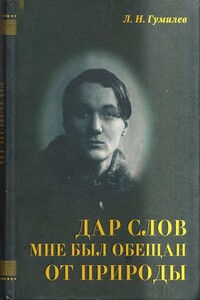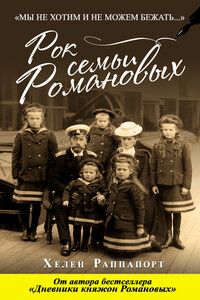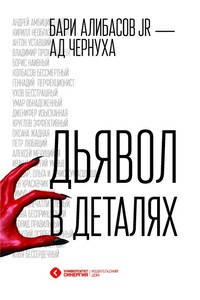The Boy Scouts In Russia - [23]
"I am to defend you," this officer said, pleasantly. "That is, of course, I am to see that you get fair treatment. You are accused of being a spy. The charge, as I understand it, is that you are a Russian, but have disguised yourself as a German. If this is true, the best advice I can give you is to plead guilty and throw yourself on the mercy of the court. Your age will be taken into consideration."
"I am not a Russian," said Fred, quickly. "I am an American. I demand an opportunity to see the American ambassador, or at least the nearest American consul."
"Is that all?"
"That is all I can say. It is true that I am an American, and I believe it is my right, as a foreigner, to ask to see the representative of my country, since America and Germany are not at war, but are friendly one to the other."
"That would be true if you were charged with an offence in a civil court. But in a court-martial there are no such rules. Once more, I believe your best course is to plead guilty. I do not know the evidence against you, but I can tell you that the court might be merciful if you admitted your guilt frankly, while it would probably treat you more harshly if you forced it to prove your guilt."
Fred shook his head, however. And so the trial began. It was a real trial, and fair enough, but a trial by court-martial is not like one in a civil court, especially in time of war. There were no delays. The judge-advocate stated the case against Fred very briefly. He called as witness the officer who had brought Fred into headquarters, who said that the prisoner had been entirely willing to come. Then the corporal who had found him testified. And the third witness, when he was called, was none other than Lieutenant Ernst, who had befriended Fred at Virballen! At the sight of him Fred's heart sank. He began to understand what a strong case there really was against him.
At Ernst's first words there was almost a sensation, for the lieutenant brought out the fact that Fred was related to the Suvaroff family. The fact that Fred had gone straight to the house of his kinsman came out as a result of Ernst's evidence, and Fred knew that it would be useless to say that this had been the result of pure chance, and that he had not even known of Boris's existence. It was true, but it was none the less incredible. It was easy to see when Ernst had finished giving his testimony, which he did reluctantly, and with a good deal of sympathy for Fred, that the court had made up its mind.
There were no witnesses for Fred to call. He told his own story, but it was not believed. The finding of the court was inevitable: "Guilty as charged!" And Colonel Goldapp, in an expressionless voice, pronounced sentence.
"The prisoner is old enough, though he is only a boy, to know the fate of a spy. He risked this fate. He will be shot at once. Captain von Glahn will take charge of the execution of the court's sentence."
Fred passed through the minutes that followed as if he were in a dream. It seemed to him that it was someone else who was led into the garden, placed against a wall, and blindfolded. Von Glahn, a young officer, came and stood beside him.
"The firing squad will be here at once," he said. "I am sorry. Is there any message I can deliver for you?"
And then outside a bugle rang out, and there was a burst of wild, frenzied yelling and the next moment a crash of firing. CHAPTER XI
Something fell against Fred, something heavy and warm. It was a full minute before he realized that it was von Glahn, staggering, coughing. He supported the German officer for a moment. Then they went down together with von Glahn, still coughing terribly, on top. That saved Fred's life. For over him now, for the next five minutes, there raged a furious fight. Horses were all through the grounds; Fred heard them, and the savage, unearthly cries of their riders. For the first minute there was a good deal of firing. He guessed that the firing squad that had been meant for him was putting up a stiff struggle; later he knew it.
Then abruptly it was all over. There was no sound save the groans of wounded men. The firing ceased, and with it the fierce shouts of those who had invaded the garden at that most critical of moments. Fred realized afterward that he must have fainted, for when next he could see and hear, there was a faint light in the sky. He was aroused by the moving of the heavy weight of von Glahn's body, and looked up to see a bearded man, small and wiry, in a rough sheepskin coat, who grinned down at him.
"Not hurt, eh, comrade?" said this man in Russian. He seemed surprised when Fred answered in his own tongue, and started back. But he had pushed the body of the German captain away, and Fred rose to his feet a little unsteadily. It was a wild, strange scene upon which his eyes rested. All about the place where he had lain the ground was covered with evidences of a furious struggle. Nearly a score of Germans lay about, dead. Among them were half a dozen Cossacks, and over one of these stood a riderless horse, muzzling his master's body inquisitively. Fred was about to question the man who had relieved him of von Glahn's weight when there was a sudden rush, and Boris, sobbing with delight, threw his arms about him and kissed him on both cheeks.

В настоящем издании впервые в наиболее полном виде представлено художественное наследие выдающегося историка XX века Льва Николаевича Гумилева, сына двух великих русских поэтов — Анны Ахматовой и Николая Гумилева. В книгу вошли стихи, поэмы, переводы, художественная проза, некоторые критические работы. Ряд вещей публикуется впервые по рукописям из архива Л.Н. Гумилева. Издание сопровождается вступительной статьей и подробными комментариями. Выражаем благодарность директору и сотрудникам Музея истории и освоения Норильского промышленного района за предоставленные материалы. В оформлении издания использована фотография Л.Н.

Новая книга от автора бестселлеров «Дневники княжон Романовых» и «Застигнутые революцией» посвящена самой неизвестной странице жизни последнего российского императора – попыткам спасти от гибели Николая II и его семью. Историческое расследование, основанное на недавно обнаруженных архивных материалах из России, США, Испании и Великобритании, прежде недоступных даже отечественным историкам, тщательно восстанавливает драматические события весны и лета 1917 года. Венценосные европейские родственники Романовых и матросы-большевики, русские монархисты и британские разведчики – всем им история отвела свою роль в судьбе российской царской династии.

В книге рассказывается история главного героя, который сталкивается с различными проблемами и препятствиями на протяжении всего своего путешествия. По пути он встречает множество второстепенных персонажей, которые играют важные роли в истории. Благодаря опыту главного героя книга исследует такие темы, как любовь, потеря, надежда и стойкость. По мере того, как главный герой преодолевает свои трудности, он усваивает ценные уроки жизни и растет как личность.

Эта необычная книга содержит в себе реальные истории из мира сегодняшнего российского бизнеса. В одних рассказывается о том, как предприниматели успешно разрушают бизнес-предрассудки «теоретиков», в других, наоборот, описаны катастрофические провалы, возникшие в результате принятия правильных, на первый взгляд, решений.Написанная с присущим автору остроумием книга «Дьявол в деталях» не столько о кейсах, сколько о правде жизни типичных российских предпринимателей.«Фишка» книги — авторские иллюстрации-«демотиваторы».Книга будет интересна широкому кругу читателей, занимающихся бизнесом, но особенно будет полезна тем, кто только собирается открыть собственное дело.2-е издание, стереотипное.

В книге рассказывается история главного героя, который сталкивается с различными проблемами и препятствиями на протяжении всего своего путешествия. По пути он встречает множество второстепенных персонажей, которые играют важные роли в истории. Благодаря опыту главного героя книга исследует такие темы, как любовь, потеря, надежда и стойкость. По мере того, как главный герой преодолевает свои трудности, он усваивает ценные уроки жизни и растет как личность.